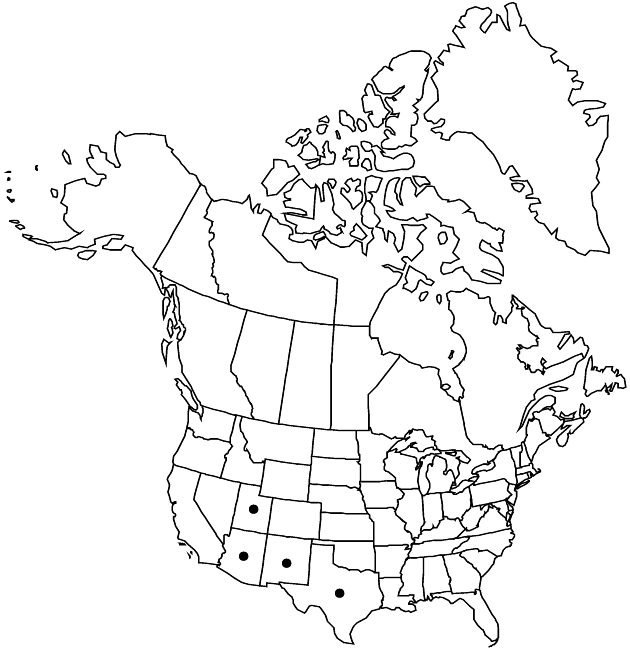Psilostrophe tagetina
Pittonia 2: 176. 1891.
Basionym: Riddellia tagetina Nuttall Trans. Amer. Philos. Soc., n. s. 7: 371. 1841 (as tagetinae)
Synonyms: Psilostrophe tagetina var. grandiflora (Rydberg) Heiser Psilostrophe tagetina var. lanata A. Nelson
Revision as of 18:46, 24 September 2019 by FNA>Volume Importer
Biennials or perennials (rarely flowering first year), 10–30(–60+) cm. Stems arachno-villous (gray to gray-green). Heads in ± loose to crowded, corymbiform arrays. Peduncles (3–)12–20(–40) mm. Involucres 4–8 mm. Rays 3–4(–6); laminae (3–)7–14+ mm, spreading in fruit. Disc florets 6–9(–12). Cypselae usually glabrous, sometimes hirtellous and/or gland-dotted; pappi of (4–)6–8 elliptic or lanceolate to lance-subulate scales 2–3+ mm. 2n = 32.
Phenology: Flowering (Apr–)May–Sep(–Dec).
Habitat: Desert scrub, grasslands, limestone soils, saline flats, sandy soils
Elevation: (300–)600–2400 m
Distribution

Ariz., N.Mex., Tex., Utah, Mexico (Chihuahua, Coahuila).
Discussion
See comments under 6. Psilostrophe villosa.
Selected References
None.
Lower Taxa
None.
